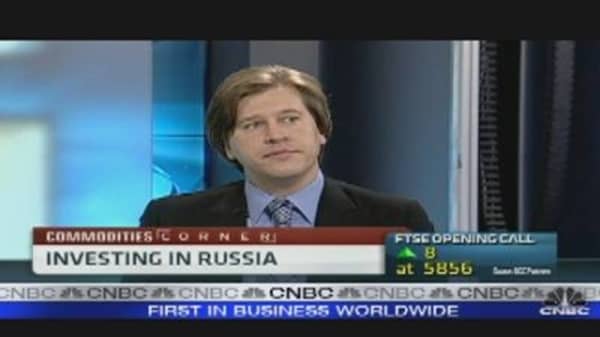Aluminum will average $2,700 per ton for the year, the deputy chief executive of Rusal, the world’s largest aluminum company, told CNBC in an interview Friday.
“I personally think there will be a $2,700 average for this year for aluminum," Maxim Sokov, deputy to Russian tycoon Oleg Deripaska at Rusal, said.
“We are quite bullish generally in the commodities market. We believe that China and Asia will be the main drivers for the market, and that the situation in China and Japan will be the key driver for medium term demand in Q3 and Q4,” he added.
Deripaska is currently locked in a battle with rival metals tycoon Vladimir Potanin for control of Norilsk Nickel, of which Rusal owns 25 percent.
Sokov, who has been a member of the board at Norilsk Nickel as Rusal’s representative since 2008, said: “Decisions are still not being brought up with the board and that’s the big problem.”
Corporate governance issues have dogged Russian companies share prices around the world, Sokov said, citing Gazprom as one example.
“Although it sounds like a soft issue it’s not. Some of the Russian companies trade at a discount to their industry peers mostly because of corporate governance issues," Sokov said. “Management believe that they are not required to bring up subsidiary debates."
Oil company Surguneftegaz has not disclosed international accounts for several years despite being publicly listed
“We are trying to work out what good corporate governance is,” Sokov added. “The President announced recently laws which will change the legislative environment, especially for corporate governance, in the next 12 months.”
Russian President Dmitri Medvedev has announced plans to improve Moscow’s international reputation in an effort to turn the city into a greater financial centre, ahead of elections last year.
The measures are designed to increase transparency, enforce international accounting standards and give minority shareholders greater power.
Russian businessmen including Deripaska have spoken out in favor of the plans.
Critics such as William Browder, co-founder of Hermitage Capital Management, who was barred from the country in 2006, believe that the reforms do not go far enough.




